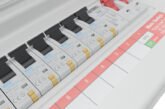
Kevin Sparrow, Industry Portfolio Manager – BSE at EAL Awards, delves deeper into the value of training and CPD in meeting net-zero targets.
As we strive to meet net zero targets, householders and businesses are switching to low-carbon technologies, including e-mobility and EV charging points, solar PV, and electrical energy storage systems. These systems require specialist knowledge, skills, and understanding to be designed, installed, and commissioned safely and correctly.
Transitioning to low-carbon technologies
Consumers are choosing these new technologies to reduce their carbon footprint and energy costs (including electricity arbitrage), and they also help provide them with a reliable energy source for the future. MCS, which creates and maintains standards that allow for the certification of products, installers, and their installations, found that solar PV continues to be the most popular renewable technology amongst UK homeowners, with more than 183,000 certified solar PV installations installed across the country in 2023.
Low-carbon technologies are now more embedded in electrical apprenticeship standards than ever before, resulting in new apprentices having a greater appreciation of these systems and prosumer’s electrical installations (PEIs), alongside conventional electrical installations.
England’s installation and maintenance electrician standard is also now recognised as a green apprenticeship. It carries the King Charles III Coronation Stamp (this apprenticeship qualification is also delivered in Northern Ireland). Welsh apprentices will also learn about PEIs and low-carbon technologies in their purpose-built qualification.
Demand for skilled electricians
For solar PV, The Electrotechnical Skills Partnership (TESP), formed by the Electrical Contractors Association (ECA), Joint Industry Board (JIB), National Electrotechnical Training (NET), SELECT, and Unite the Union, found that the UK has a current solar capacity of around 15 GW.
The research found that the boost in solar installation requires up to 500 additional qualified electricians per year.
TESP wants to ensure public safety with solar PV and other low-carbon technology installations, so they should only be carried out by competent electricians who have upskilled in the relevant technologies.
Therefore, last year, TESP launched the ‘Electrician Plus’ concept, which includes a mechanism to have industry CPD qualifications recognised and awarded with a Kitemark.
EAL is the only AO to offer all the following with this new Kitemark:
– EAL Level 3 Award in the Installation of Small Scale Solar Photovoltaic Systems – 600/5175/9
– EAL Level 3 Award in the Requirements for the Installation of Electric Vehicle Charging Points – 603/3929/9
– EAL Level 3 Award in the Design, Installation and Commissioning of Electrical Energy Storage Systems – 610/2091/6
Approved qualifications must operate in full compliance with an industry assessment strategy and will have been reviewed in detail by the ECS technical approval group.
Where relevant, these qualifications will also be recognised by MCS. This will give contractors confidence that they’re achieving a good quality and valid industry qualification.
Low carbon technologies are ever-evolving and impacting ways of working – an example is Amendment 3:2024 to BS 7671:2018 which aims to clarify the differences between connections for unidirectional and bidirectional RCDs and circuit-breakers.
Undertaking good quality training and CPD, which meets the ‘Electrician Plus’ Kitemark, is the best way to upskill and gain industry recognition in these technologies.
This will then help to ensure that these systems are installed safely and correctly and that contractors meet industry requirements and gain relevant recognition. This is especially important in solar and electrical energy storage installations, which have a range of safety and technically critical aspects, such as DC arc flash and fire hazards, that contractors may not be familiar with. A range of standards and requirements impact these systems, including CDM, BS 7671, BS 7430, and BS 5839-6.
Energy storage CPD will cover how to size batteries for given applications and island mode operation, together with the key issues for the electrical installation design, modes of operation, design issues, D.C systems, and a range of other topics that follow industry guidance from MCS, the IET, and PAS 63100:2024.
Learners will get hands-on training and undertake practical assessments to ensure they have the skills to put the theory into practice. CPD in these technologies will align the theory and practice to help you have the right skills, knowledge and understanding to excel.
Our commitment to sustainability
Some training providers have been able to attract funding to deliver these qualifications, and another option for eligible contractors is the JIB Skills Development Fund, which provides financial assistance for courses for those undertaking further education and training in the electrical industry.
This fund, for JIB member companies, is for electrical operatives and registered apprentices for courses over and above the normal requirements of the JIB grading system.
JIB member companies can benefit from grants for training and upskilling their workforce, helping to make their business more competitive. This funding is up to 75% of course fees, up to £1,250 per person, per course, per year, so it can add up very quickly in helping your business to grow.
We want as many engineers and employers as possible to acquire sustainability and green technology skills to the right standards. So, if you’re considering expanding your business and upskilling into these technologies, there’s no better time to upskill to meet net-zero.
Learn more about EAL Awards and its qualifications here
Find more industry feature articles here








